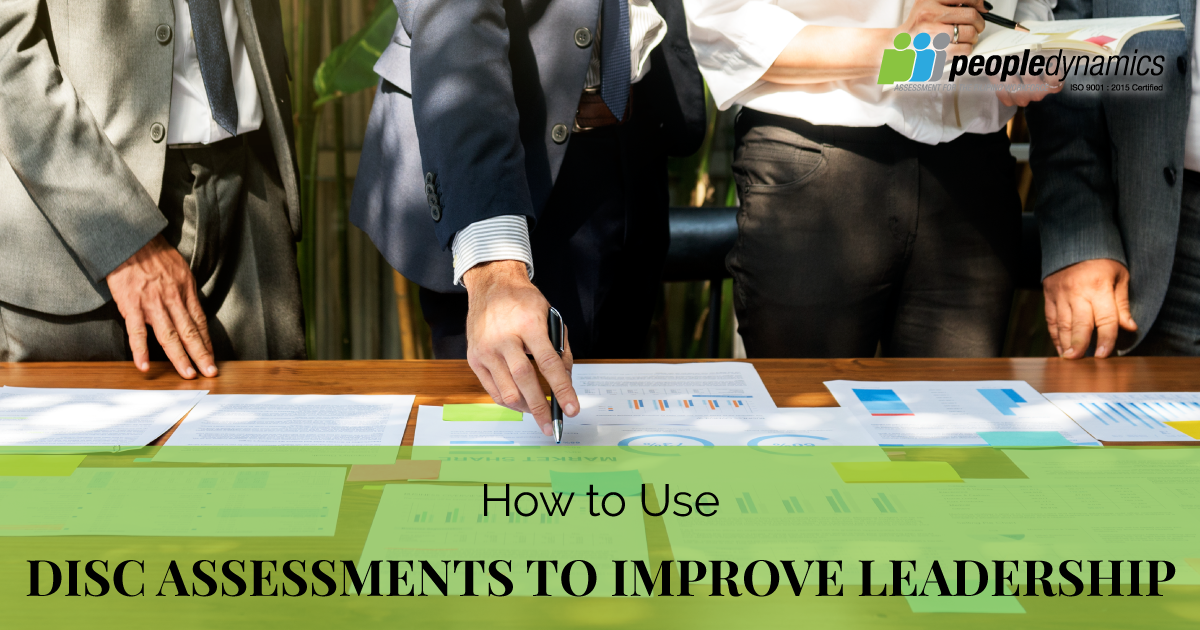All teams depend on a variety of different skills and personalities being brought together in order to reach a defined goal. In a business, this goal will typically be to increase profits and drive up productivity, amongst other things. Any team requires strong leadership if they’re to prove effective and each individual is to reach their full potential. Ineffective leadership and dysfunctional teams can prove costly to a business; with low productivity, high staff turnover, and unacceptable customer service being negative influences that can cripple the profits of any company.
Developing a deeper understanding of your individual leadership style and personality profile can help increase the awareness you have of those around you and assist in improving personal relationships with your team. A leader is most effective when they take into account the skills and abilities of the people they preside over; combining everyone’s unique strengths to help the team reach its overall goal. A DISC (Dominance, Influence, Steadiness, and Compliance) assessment is a well-researched method of increasing awareness of the personality types of people working in a team.
What is a DISC Profile?
Put simply, a DISC profile is an in-depth personality test. The assessment, typically done personally as a self-assessment, takes a look into the four different personality types and how your natural traits and behaviours can impact the way in which you process and act on information. Finding out the DISC profile of your team can assist greatly in providing effective leadership, allowing you to consider the unique qualities of each individual in your team so that you can make informed and purposeful decisions; building effective relationships, and helping with the management of any conflict that could arise within the team.
The best thing about the DISC profile is that it provides easily understandable information that allows you to quickly understand those around you and the ways in which they behave and may work most effectively. Teams with an understanding of each other, that work effectively in support of one another, tend to be more successful and work together as a team with fewer conflicts. Whilst the DISC assessment is a long-established and proven framework for assessing the personalities of individual team members, more recent additions include the measurement of emotional intelligence so that identified strengths can be tapped into more effectively. A DISC flow assessment can be an advantageous benefit to a business, providing deep insight into the personalities and behaviours of its employees.
What are the DISC Profile Personality types?
The personality types that all DISC profile assessments are developed from today are based on the original work of William Moulton Marston, who identified four primary emotions and the behavioral responses associated with them. These are commonly defined as Dominance, Influence, Steadiness, and Compliance. These personality profiles have been linked to particular ways of behaving and preferences for how an individual likes to do things. Through understanding the different personality types, and which members of your team belong to which profile, an effective leader will be able to best tailor their own behaviours and responses to best suit who they’re engaging with, enabling better inter-personal relationships to grow while boosting productivity and job satisfaction.
Whilst there are four main personality profiles in a DISC assessment, it’s important to take into consideration that some people may exhibit traits and preferences from different profiles to their own primary one. Most DISC profile assessments will take this into account by identifying sub-categories that transcend different profiles (such as DI and SC). As an example of the type of personality traits these assessments identify, someone assessed as being of an I DISC type is described as being highly sociable and lively, whereas the CS personality type is defined as being more quiet and self-controlled.
How Employee DISC Profiles can be used to Improve Leadership
As has been discussed above, having employees complete a DISC Profile Assessment can provide numerous advantages for improving the cohesion of a team. Having an understanding of how other people prefer to work and what motivates them best will always be helpful for a good, flexible, leader. But how could a DISC Flow assessment actually be used in order to improve leadership?
When looking towards growing a business over the longer-term, it’s vitally important that the employees are all working towards the common goals of the company and that the leaders who’re ensuring the smooth operation of everything are at one with the company’s values. Effective leaders will usually display personality traits akin to problem-solving and will be able to create a productive work environment with the future goals of the business always being kept in mind.
Employees will all have differing personality profiles and different ways of behaving and completing their personal workloads. It’s crucial that a leader has the flexibility and emotional intelligence necessary in order to take into account the needs of those in their team on individual levels. A strong leader who is able to adapt to the needs of different people will allow for a safe and productive working environment where each player in the team feels valued. Some employees may need more validation and encouragement, whilst others will be more self-starting and possess the ability to simply get on with things without the encouragement of their leader. These are both examples that all leaders should be taking into account if they wish to maximize the potential of everyone in their team.
With the implementation of DISC Profile assessments, those in the business responsible for hiring new employees could use such an assessment during the recruitment process. In formal interview environments, people tend to focus on the best aspects of themselves and the prior experience they may have, with some things potentially being exaggerated. With a DISC Profile assessment, the person carrying out the interview will be able to quickly see what personal qualities and behaviours the potential employee displays and whether they would be suitable for the role they’re being considered for. DISC assessments are straight forward and are designed to be non-intimidating – adding what could be a more relaxed and comfortable aspect to a daunting interview process. These results, if the individual is hired, could then be shared with the management team they’re working with so they know how best to encourage the best possible work out of their new teammate and develop a better working relationship with them.
Overall, DISC profile assessments are becoming increasingly dominant in businesses – with leaders hoping to bring out the best of everyone in their teams and seeking to develop more effective work relationships with their employees. DISC assessments are an affordable and easy way to develop a much deeper understanding of not only yourself and your own personality, but also the behaviours of those around you.




